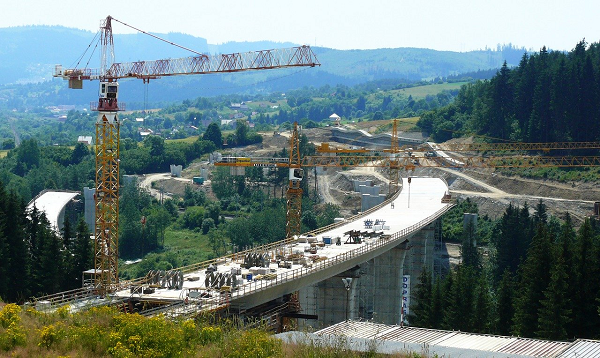
Public–private partnership is a term for a specific project or general undertaking based on collaboration between public institutions and businesses, most typically involving infrastructure development.
Our city council announced a new public–private partnership with a partner from the IT sector, the aim of which is to create a new wireless infrastructure and provide high-speed internet connection to all citizens.
A public–private partnership, often abbreviated PPP, is carried out with the aim to take advantages of both public and private financing and project management. PPP most typically concerns projects related to transportation (e.g., highways, bridges, mass transit), the energy sector (e.g., power generation, transmission, and distribution), and other types of infrastructure (e.g., water and sewer, telecommunications). Depending on situation and specific contract, a private entity or consortium may, for example, build and finance a project and afterwards it to a public institution and possibly provide maintenance and service. The project itself may be owned by the public institution or may be transferred into public ownership after some time. Although there are many situations wherein such cooperation would be very advantageous, such partnerships often face criticism, too, because they may be susceptible to bribery and other forms of corruption, as well as to allegations that the profits and benefits to the private sector exceed those to the public sector.
Partnerství veřejného a soukromého sektoru je termín označující konkrétní projekt nebo obecný postup založený na spolupráci mezi veřejnými institucemi a firmami, která se nejčastěji týká vývoje infrastruktury.
Městská rada oznámila nové partnerství veřejného a soukromého sektoru, jehož cílem je společně s partnerem z oblasti IT vytvořit novou bezdrátovou infrastrukturou a poskytnout vysokorychlostní internetové připojení všem obyvatelům města.
Partnerství veřejného a soukromého sektoru, v angličtině často zkracováno na PPP, bývá uzavíráno s cílem využít výhod jak veřejného tak soukromého financování a projektového managementu. Nejtypičtěji se PPP týká projektů souvisejících s dopravou (např. dálnice, mosty, hromadná doprava), energetickým sektorem (např. výroba elektrické energie, její přenos a distribuce) a jinými typy infrastruktury (např. voda a kanalizace, telekomunikace). V závislosti na situaci a konkrétní smlouvě může soukromá entita nebo konsorcium projekt například postavit a financovat a poté jej pronajmout veřejné instituci, případně poskytovat údržbu a servis. Projekt samotný může být vlastněn veřejnou institucí nebo může do jejího vlastnictví přejít po čase. Ačkoliv je mnoho situací, kdy by taková kooperace byla výhodná, zmíněná partnerství často čelí také kritice, neboť vytvářejí prostor pro uplácení a jiné formy korupce a také pro domněnky, že výnosy a výhody pro soukromý sektor jsou vyšší než ty pro veřejný sektor.
English Editorial Services’ mission is to assist international businesses and organizations of all sizes to communicate clearly, correctly, and persuasively with their business partners and target audiences.
Simply subscribe to receive our Business Term of the Day at no charge to your inbox each business day, with explanation in English and Czech.



English Editorial Services’ mission is to assist international businesses and organizations of all sizes to communicate clearly, correctly, and persuasively with their business partners and target audiences.
Simply subscribe to receive our Business Term of the Day at no charge to your inbox each business day, with explanation in English and Czech.

